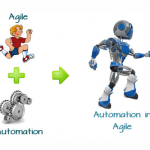Transition from a traditional development model to an agile methodology is often met with some degree of skepticism and doubts by testers. Books and programs on Agile development tend to emphasize the need for multi-skilled generalists who can take up different functional roles as needed. This tends to cause specialist testers to worry about losing their identity in an agile world. Is there a need for specialists in agile or is the agile world inhabited by generalists, the proverbial jack-of-all-trades ?
To answer this question, look no further than your favorite team sport. Agile software development is a team process involving members from the different functional groups coming together as part of one team to produce software. No longer are they members of distinct teams such as development, testing, technical writing, i18n, l10n, etc. Back to our earlier question on whether agile needs specialists or is the new world full of generalists ?
Like a team sporting activity, for a team to be successful it cannot be – 1) all members of one particular type or specialize in one activity e.g. development or testing alone 2) all members who are generalists and knowing part of all functions but not specialists of any function. How would you rate the chances of your favorite sports team if it were comprised of either types of members – a) all players who specialize in just one area e.g. of cricket which I follow: a team of just batsmen or just bowlers b) all generalists e.g. again of cricket: a team of just all-rounders – it might be better than the first choice with only players of one type but still not the best choice. An agile team takes a step towards success when it comprises specialists from the different functions coming together and working together collaboratively to produce software. Each member of the agile team brings to the table their unique set of skills that influence the software’s development and success of the project. However, an additional requirement for these specialists that are part of the agile team is to be able and willing to share in some of their non-core tasks. For example, a tester who can debug defects and make small fixes if need be, a developer who can also document their feature or do some testing, etc.
There is truth to the statement that agile needs generalists. However, it is better to have specialists who can go beyond their functional domains to help towards the release rather than specialists who just restrict their involvement to their functional area of specialization. Ultimately, agile development is a team effort and testers like others on the team must own the release from the beginning without merely trying to police it at the end.



















